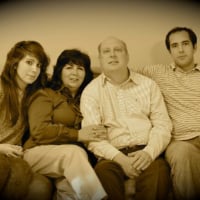We were asked in a stake training session if there is policy (other than the 100 yrs old policy) for
Risposte
-
You can get to the "reservation policy" from the same page that lists your temple reservations. Here is the link:
[click expand post"]
The main "spirit" of the rule - is that we should be doing the work for our own family
(but the truth is we can very literally be related to millions of people - even if we dont yet know yet the exact relationships of such people)
Understanding that - church policy has included this one "catch all"
- [You can submit work for] Possible ancestors, meaning individuals who have a probable family relationship that cannot be verified because the records are inadequate, such as those who have the same last name and resided in the same area as your known ancestors.
whether or not this applies to a specific case - is really - for the most part - up to the user to determine. (Technically you can submit work for anyone before the 110 year rule - the system wont stop you if you cannot prove a relationship)
BUT again the spirit of the rule is "you should be doing the work for your family"
They dont require that you can fully document the connection.
I fully support following the general guideline . . . but truth is, there are no "FS Police" making sure you are in compliance with each transaction. Use the spirit to be your guide if you fall under this rule.
0 -
Due to its LDS nature - I am moving this post to:
@All Temple & Family History Consultants
0 -
It is actually 110 years old policy. Even is some line ends so that they do not have posterity, those people are always someone's cousin line. After we have done the work for our direct ancestors we can do the work also to our aunts (great aunts, great great aunts), uncles and their children and their children, our cousins.
0 -
In short "family" you can do temple work for - is pretty inclusive and not just your direct ancestors . . .
0 -
Ancestral Research goes back in time. What you are asking about is Descendancy Research.
Descendancy Research starts with an ancestor and comes forward in time. You are authorized to research all of the descendants of each of your ancestors.
There are at least two approaches. One is to pick any of your ancestors and researching all of their descendants.
The other approach is to work back and forward, working back one generation at a time and bring each of those ancestors’ descendants forward. As you work back another generation, coming forward to the present time can take a lot of work.
one thing to note is that I don’t record any living relatives in the tree. I maintain a separate copy of my relatives in a local genealogical program. That is how I can track my living relatives.
0 -
are you wanting to add a new tree for someone who is not related to you? open a person go to the end of 'RECENT' you will see 'unconnected person' work there.
0 -
Please let us know if we have answered your question and if there is anything else that needs clarification.
0 -
The above answers are very good. May I just add a note. There are no restrictions on researching anyone. In fact we are encouraged to add the servants and/or visitors that show up in census records (see adding unconnected persons under Recents and the flag under Attachments in sources when the source is not attached to all the persons in the source).
It is only the submitting of the names that focuses on us following the guidelines given, in order to allow others to submit their own relatives.
In cases of "dead ends", research carefully and follow the spirit. Most of the time they are related to someone.
0 -
"dead ends" (perrsons with no children who have a common ancestors with you) - are indeed your relations - they can be treated just like any other relation (as far as researching and submission). They are related to YOU. (not just "someone")
Ive never seen the "encouraged to add servants / visitors" comment - I dont know where that came from.
(but I agree there is nothing intrinsically wrong with adding them - but preferably adding them with as much info as you can find from other sources as well - if possible - preferably more than just the info on a single census record as a servant with no indication who they are related to.
0

